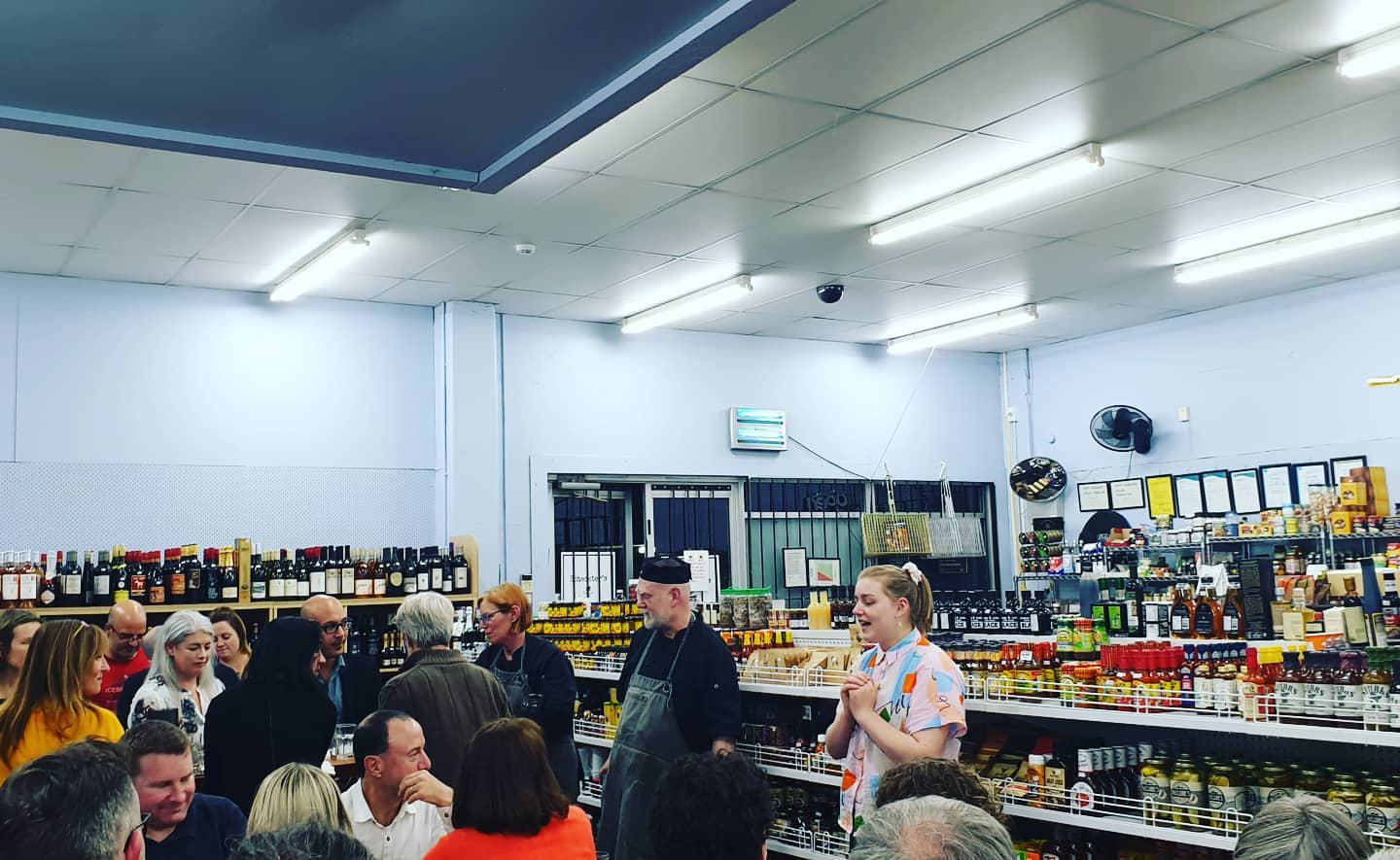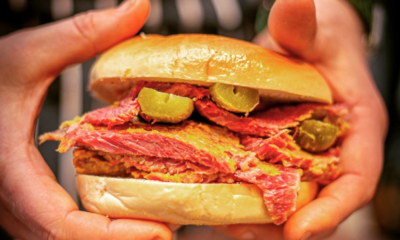
Featured Item

SA expat wows Wellington with Jewish delicacies
Published
3 years agoon
By
Jordan MosheIt’s a truth universally acknowledged that a Jew who doesn’t appreciate good food must be in want of reason. Be it perogen or pastrami, kugel or kitka, food is a firm part of a Jewish foundation, and to say otherwise is almost heretical.
Few people perhaps understand this as well as South African expat and culinary maestro, Steven Scheckter, a man whose knowledge of all things food has captured the hearts and stomachs of his fellow residents in Wellington, New Zealand.
Owner of On Trays Deli, Scheckter has brought South African flair and Jewish know-how to his kitchen, and the locals just can’t get enough.
Originally from Vryburg in North West province, Scheckter emigrated to New Zealand with his wife, Valda, in 1997. Since then, he has blazed a trail across the food scene in Wellington, offering customers imported delicacies from around the world as well as the best Jewish deli dishes conceivable.
“It all began when I started selling cheese,” Scheckter told the SA Jewish Report this week. “I had worked in the motor business in South Africa originally, and when we arrived here from Vryburg, my wife had a job lined up as a nurse, but I couldn’t find anything.
“After eight months, my visa came through, I was allowed to work, and I heard of someone looking for a person to sell cheese, so I took it up.”
As a cheese supplier to stores and restaurants, Scheckter’s work brought him into contact with another local Jewish family, the Chaits, who owned the oldest deli in Wellington, Dixon Street Deli. Teaming up with the Chaits, Scheckter and his wife began a gourmet sandwich-making venture, one considered years ahead of its time.
“We always liked food and eating in good restaurants,” he says. “We had a sandwich trolley which we pushed around for hours on end, having started making the sandwiches at 02:00 every day. We wore uniforms, offered printed serviettes, and we later had two trolleys before we branched out into a bit of wholesaling and then gave up the sandwich venture.”
Seeing a gap in the local market, Scheckter moved into retail and began stocking imported foodstuffs, becoming Wellington’s largest supplier of products from Israel, Greece, Italy, Argentina, and, of course, South Africa. Among his stock are kosher products such as matza, kosher wines, and pickles, catering for the extremely small Orthodox core of about ten religious families.
“There are about 70 000 South Africans here, so we sell staple South African products like rooibos tea, ProNutro, Marmite, rusks, biltong, and more,” he says. “People always seek these things out, and they’re always popular. Our kosher shop is also quite popular, and it’s amazing to see that while the community is small, there is a Jewish presence here.”
In spite of his move into retail, Scheckter still yearned to make sandwiches. This dream owed some of its inspiration to the Jewish delis of his younger days, South African establishments which had perfected the art of making the gourmet sandwich.
“I’ll always remember the places I’d go to for a pastrami on rye,” he says. “There was Wachenheimers in Doornfontein, which had a little yellow room at the back where you could sit and eat, and there was the Menorah Delicatessen in Cyrildene. They knew how to make sandwiches.”
“I really wanted to make pastrami on rye like they had, but I could find no pastrami in New Zealand. I had to make it happen.”
Schechter spent years studying how to produce pastrami, understanding the process of pickling, cold smoking, and later steaming the meat. Five years ago, he perfected the process, and resumed making sandwiches, reviving his business officially as On Trays Scheckter’s Deli alongside his retail store.
“We gained a reputation for our Ruben sandwiches very quickly,” he says. “People came to love our pastrami, and we grew our business by being innovative and making sure we kept up with the gourmet scene.”
Not only has the business kept up, it also left a mark on the Wellington On A Plate food festival this year. In spite of global pandemic restrictions, New Zealand’s largest culinary event went ahead this month, offering locals an opportunity to sample mouth-watering food prepared by various eateries.
Unique though many of them were, Scheckter offered something no one else could: a Jewish deli experience.
“All the local restaurants get involved, so we decided to throw our hat into the ring and put on a Jewish experience,” he says.
“While they know about South Africans, braais, and wors, locals don’t have much exposure to Jewish tradition because there aren’t too many Jews in the country. We decided to give them a real taste of Jewish cuisine and raise some awareness about who we are.”
Working with Valda and their daughter, Maxine, (a pastry chef and the owner of Wellington patisserie Sugar Flour), Scheckter presented a gastronomic extravaganza which would make any Jewish mother proud. Starting with a round challah and honey, the meal featured iconic dishes like matza with chopped liver, chicken soup with kneidlach, buckwheat and pasta kasha varnishkes, and pastrami on rye (served in the Wachenheimer fashion with a dollop of piccalilli). A baked cheesecake served with coffee, halva, and Israeli wine capped off the experience.
The significance of each dish was also explained to the diners, all of whom enjoyed their food with considerable relish.
Says Scheckter, “Our clients gave us fantastic responses. We sold out the first three events within an hour, and we put on a fourth as well.
“We had some phenomenal people participate. There was a young man from Boston at the first one who took me aside and said, ‘Your kasha varnishkes are better than my gran’s, but you can never let her know I said that.’
“It’s an opportunity to share our stories and traditions with New Zealand, and it has been such a rewarding experience.”
At the end of the day, Judaism depends on all of us keeping what we have, and telling others about it, Schechter believes.
“What makes us different is what makes us Jews,” he says. “We need to tell people about who we are and what we’re about. It’s an important part of what I do in the food business, and I think we all need to go out of our way to share with others.”








